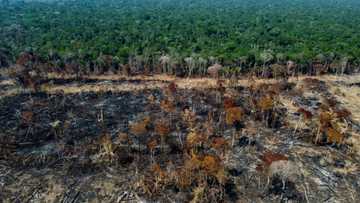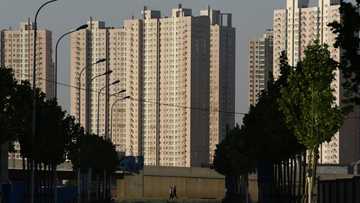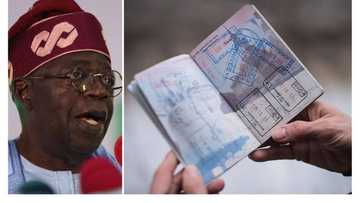Three Fuel Subsidy Removal Palliatives Tinubu Must Implement in Nigeria
- The removal of fuel subsidy in Nigeria has affected many Nigerians in different ways
- It has led to a call to the Federal Government to put in place palliatives that would help cushion the economic effect on citizens
- Suggested palliatives include cash transfers, an increase in the minimum wage of workers, among others
PAY ATTENTION: Сheck out news that is picked exactly for YOU ➡️ click on “Recommended for you” and enjoy!
A research report has suggested ways the Federal Government can provide palliatives to cushion the impact of fuel subsidy on Nigerians.
The suggestions were disclosed in a report titled "Fuel Subsidy Removal Short-term Pain, Long-term Gain", published by Deloitte, a multinational auditing firm, in June 2023.
The report highlighted, amongst other things, the history of fuel subsidy in Nigeria, the merits and demerits of subsidy payments, and the implications of subsidy removal.
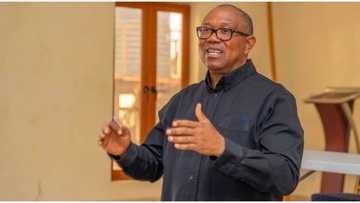
Read also
“Not Appropriate Time”: Peter Obi speaks on alleged 114% salary increase for Tinubu, Shettima, govs, others
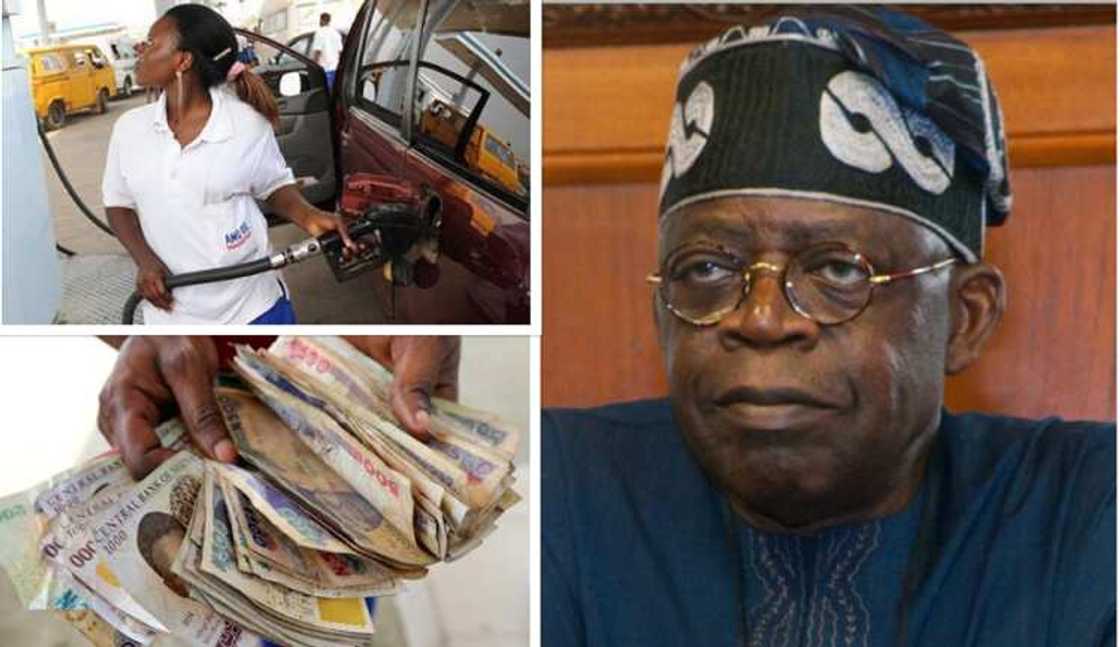
Source: UGC
President Tinubu finally solves the fuel subsidy removal dilemma
For decades, the Federal Government has subsidised fuel and fixed retail prices of petroleum products. Despite rising global oil prices, Nigeria's fiscal deficit continued to widen mainly due to the country's high fuel subsidy cost.
PAY ATTENTION: Join Legit.ng Telegram channel! Never miss important updates!
Nigeria's fuel subsidy regime was marred by serious allegations of sharp practices and corruption that have drained the country of trillions of naira. All of these were highlighted by Legit.ng in a previous article.
President Bola Tinubu, a strong advocate of subsidy removal, had in his manifesto and during campaigns maintained his resolve to withdraw subsidy. He stated that the funds realised from the fuel subsidy removal would be used for targeted infrastructural and social welfare programs.
Nigeria, an oil-producing country, has enough crude oil but lacks a functional refinery to refine the product. As a result, it exports its crude oil to foreign refineries and then imports refined petroleum products for domestic consumption.
The inconsistencies in the amount spent on subsidy and the economic imbalance have forced many Nigerians to call for an end to the subsidy regime.
Deloitte proffers palliative measures Tinubu must adopt
The removal of fuel subsidy in Nigeria seems to have brought untold hardship to many Nigerians and businesses. Deloitte has highlighted the following strategies that Tinubu's administration can adopt to ensure the Nigerians are relieved from the impact.
Minimum wage increases for Nigerian workers
One of the most viable options for the government to provide relief measures is implementing a higher minimum wage.
Recently, the Trade Union Congress of Nigeria demanded to raise the current minimum wage from NGN 30,000 to NGN 200,000.
However, it's important to note that increasing wages can have inflationary consequences, potentially leading to a more stringent monetary policy.
Another alternative for the government to consider is raising taxes to finance the anticipated wage increase, but this decision would have repercussions for consumers and their finances.
Cash transfers targeted at the poorest and most vulnerable
To mitigate the adverse effects of removing fuel subsidies, the government can explore implementing a social security program, such as cash transfers, specifically targeted towards the poorest and most vulnerable segments of society.
This measure aims to improve their living standards and provide support during this challenging period.
However, there are concerns regarding implementing cash transfers in Nigeria, given past experiences, which raises doubts about the integrity of the process.
Questions arise regarding the criteria for identifying individuals who qualify as the poorest and most vulnerable. Will the funds reach the intended recipients?
Additionally, how much will be agreed upon, and will it be sufficient in real terms to counter the impact of inflation on consumers' purchasing power?
As per the Federal Government of Nigeria, approximately 1.94 million Nigerians currently receive a monthly sum of N5,000 as part of the national cash transfer program for vulnerable individuals.

Read also
Tinubu plans distribution of cheap fuel as cost of powering 7.5KVA generator increases to N1,000/hour
However, with an inflation rate of 22.22%, the actual value of this cash assistance is considerably diminished.
Proposed World Bank $800m loan as an immediate relief
The proposal for an $800 million loan from the World Bank as a post-subsidy removal relief measure has generated controversy regarding the necessity of such funding.
The intended purpose of the loan is to alleviate the financial burden on the government and facilitate the prompt implementation of palliative initiatives following President Tinubu's announcement.
However, should it be approved by the National Assembly and utilised, it will contribute to Nigeria's existing international debt, which amounted to $13.46 billion as of December 2022.
It is important to note that World Bank loans are concessional, meaning they come with low-interest rates and extended repayment periods.
Expert advocates more palliative measures for Nigerians
Commenting on the subject, Anthony Arume, a social commentator, told Legit.ng that the government needs to do more if it wants to relieve Nigerians of the impending hardship.
He said:
Most Nigerians are not against the subsidy removal, but they would rather the government had put in place measures to cushion the knock-on effect it would have before going ahead with the announcement.
However, the decision has already been taken, and we can not go back on it, but what the government can do to help citizens is review the Social Protection programme, which was started by the Buhari administration to include more Nigerians, especially women, young persons and Persons with Disability.
Alternative energy sources like gas need to also be promoted to reduce the reliance on petrol, and then, the provision of affordable public transportation means.
Tinubu issues fresh directive to NEC on subsidy removal palliatives
In related news, Legit.ng reported that President Bola Tinubu had instructed the National Economic Council (NEC), headed by Vice President Kashim Shettima, to initiate measures aimed at providing relief to affected individuals.
This directive was issued during a meeting where President Tinubu engaged with prominent oil marketers led by Ogun State governor, Dapo Abiodun.
Governor Abiodun expressed the marketers' solidarity with the president's decision to eliminate the subsidy burden, as it could bolster the allocation of funds to states through the Federation Account Allocation Committee (FAAC).
Source: Legit.ng


